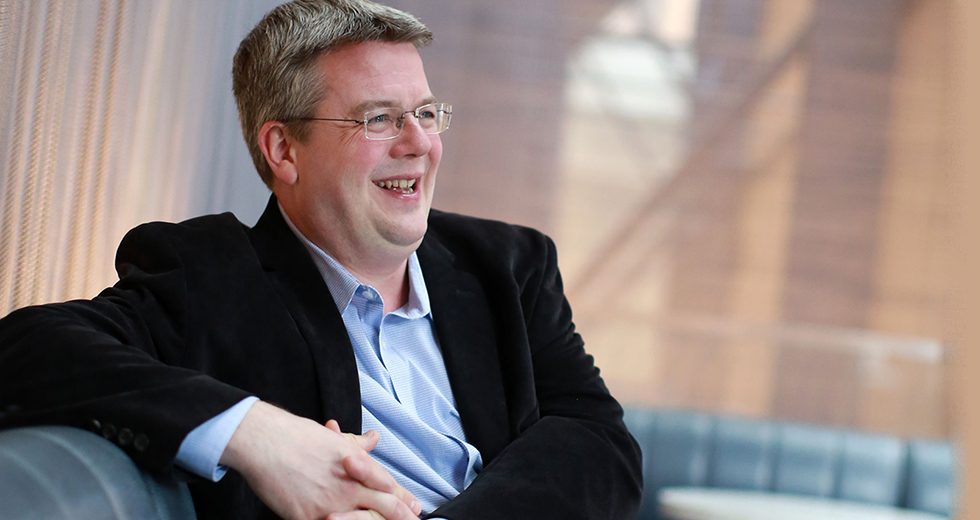
Even though Paul Watkins has been a member of the Emerson String Quartet since 2013, he is still the “new guy.” When the Welsh cellist joined the famed ensemble in its 37th season, replacing David Finckel, it was the group’s first-ever switch in personnel. Such a change can be risky, because a new player, no matter how technically accomplished, can throw off the carefully honed sound and blend that quartets work so hard to establish.
But the Emerson has weathered the transition with little if any trouble. Reviewing one of the quartet’s first concerts after the lineup change in 2013, New York Times critic Anthony Tommasini was enthusiastic. “Mr. Watkins, 43, seemed palpably comfortable and charmingly eager,” he wrote. “His playing was elegant, crisp and colorful. From this first impression, his sound seemed not as full-bodied and penetrating as Mr. Finckel’s. You were drawn in, though, by the character and imagination of his work.”
Watkins, the former principal cellist of the BBC Symphony Orchestra, will be onstage when the Emerson joins forces with pianist Evgeny Kissin for a concert April 15 as part of the Symphony Center Presents Chamber Music Series. The performance, their first together in the United States, kicks off a short American tour that also will include stops in New York’s Carnegie Hall and Boston’s Jordan Hall. They will perform three bedrock chamber works: Mozart’s Piano Quartet in G Minor, K. 478; Fauré’s Piano Quartet No. 1 and Dvořák’s Piano Quintet No. 2.
For Watkins’ part, performing with the Emerson has exceeded all his expectations. “While I was cellist in Britain, I certainly knew a number of people who were playing in string quartets,” he said. “But there is something about the level of energy and extraordinary dedication that my three colleagues have and I hope I have, too, now. It’s been life-changing. It wouldn’t be an exaggeration to say that.”
Among his many challenges was learning the string-quartet repertoire — most of which was new to him. About a year ago, he realized that he had finally played all 16 of Beethoven’s string quartets, which are seen as kind of the Mount Everest of the form. “That felt like a watershed [moment], that I’d worked my way through this extraordinary compendium of quartet writing,” he said. “I felt that I could credibly say that I had really settled into the quartet at the point.”